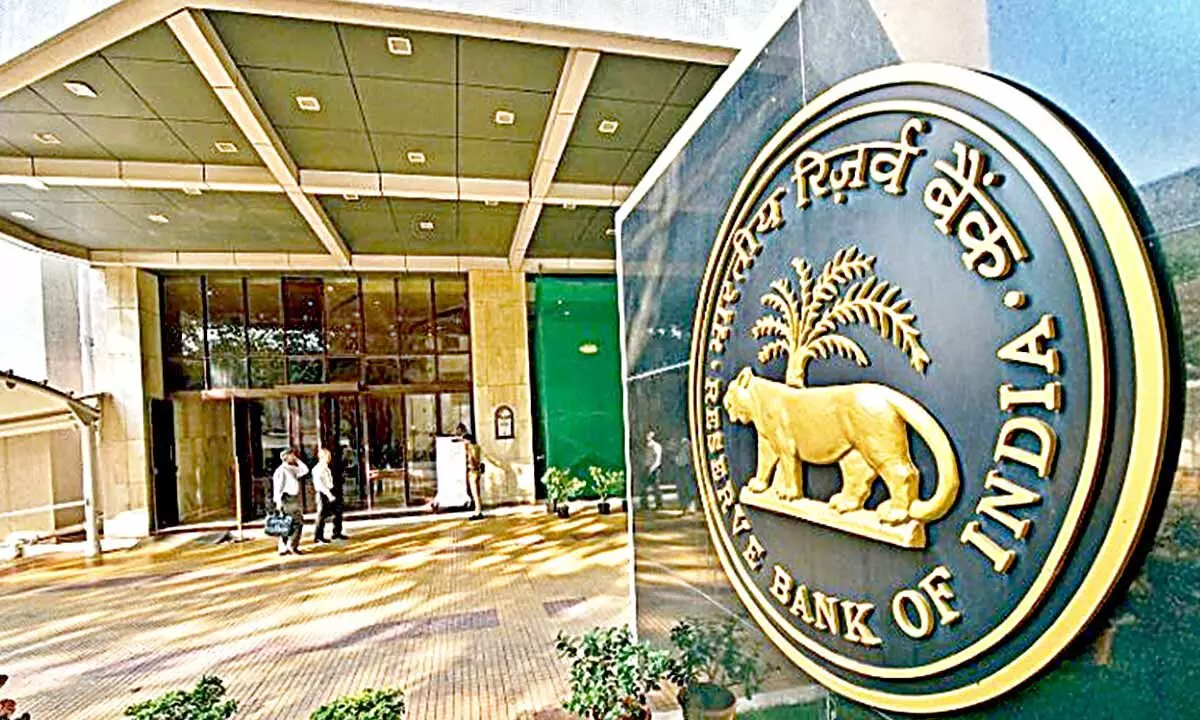RBI may focus on reining in inflation whether Fed pivot or not
The Reserve Bank of India (RBI) is likely to have an unerring focus on domestic inflation even as global markets fret over whether the US Federal Reserve would pivot towards more measured rate hikes or a pause soon enough to avoid a blow to the US economy.
image for illustrative purpose

The Reserve Bank of India (RBI) is likely to have an unerring focus on domestic inflation even as global markets fret over whether the US Federal Reserve would pivot towards more measured rate hikes or a pause soon enough to avoid a blow to the US economy.
Global markets have detected dovishness in the comments of US Federal Reserve Chairman Jerome Powell after he said that future rate hikes would be completely data dependent with a reference to a positive neutral rate. But some point out that Powell has not taken off the option of one more 75-basis-point hike. A basis point is one-hundredth of a percentage point. The dollar index has given up some of its recent gains, equity markets have risen across Asia, and bond yields have eased somewhat.
The Fed's pivot, if there is one, has implications for emerging markets since it could alter the course of dollar flows. For the RBI, a Fed pivot would potentially reduce the pressure on the rupee, and perhaps also inflationary pressures. But economists believe that the dollar flow channel, which feeds the Fed's language onto the domestic shores through actions of foreign investors, is unlikely to dominate the RBI's policy deliberations next week. "To my mind, a significant amount of FPI outflows, the short-term volatile ones, have already happened. The DXY may not rise too much and the INR too many not weaken from here. So this component won't be the main consideration for the RBI," said Saugata Bhattacharya, Chief Economist at Axis Bank.
What's more, the RBI has taken measures to support the Indian rupee and would prefer to see how these pan out. Earlier this month, the RBI allowed banks to hike interest rates on non-resident deposits to lure in dollars. It also relaxed norms to allow greater participation of foreign investors in local debt. Besides these, the central bank has been intervening in the market to slow down the rupee's depreciation. Recent comments by Governor Shaktikanta Das suggest that the RBI would continue to intervene to keep the rupee at a level commensurate with the economic fundamentals. The central bank is not perturbed by the fall in its forex reserves pile. "You buy an umbrella to use when it rains," Das had said.
That leaves us with the impact from the trade channel. A weaker currency has been a bugbear on the inflation front as it exacerbates the inflation problem for a net importing country like India. Inflation would be in focus, irrespective of its source. Retail inflation has remained uncomfortably above the RBI's mandate of 2-6 percent. Most economists see the RBI's rate-setting committee voting for at least a 35-bps hike in the repo rate when they meet next week. "The RBI will remain focused on clamping down on domestic inflation in the August policy. With no surprises from the Fed, we expect the RBI to remain on track to hike the repo rate by 35 bps while maintaining a hawkish stance," said Suvodeep Rakshit, Senior Economist at Kotak Institutional Equities, in a note. Some such as Indranil Pan, Chief Economist at YES Bank, expect a 50-bps hike.
It is easier for the RBI to tackle inflation through policy rate hikes than through the exchange rate channel. After all, the experience in 2013 shows that excessive intervention does not help when the tide is against the domestic markets. The Fed's taper at that time had resulted in a sharp fall of the rupee, which the RBI could not prevent. Instead, its forex reserves depleted rapidly and its rate hikes to lure in dollars backfired.

